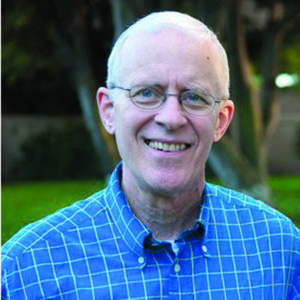
The main heroine of the story of the book of Ruth is the young widow for whom the book is named. But the significance of her story actually began long before her birth. Much earlier, God had selected Abraham to father a nation that would eventually bring the Savior of the world into the realm of humanity. The birth of this Savior, or Messiah, would bless all peoples of the world. After the birth of Abraham’s miracle-son Isaac, God extended His promise to him. Isaac’s two sons were twins, Esau being slightly older than his brother, Jacob. Before the boys were even born, God chose to bring the Messiah through the family line of Jacob, which became the twelve tribes of Israel.
A reading of the Old Testament reveals the pattern that the Jews felt that they deserved God’s blessings. They had forgotten that God set them aside in order to bless the rest of the world. Often acting like spoiled kids, they had categorized the entire world into only two camps. Either you were a Jew or you were a Gentile (heathen).
Ruth was born into the loving home of a Moabite couple. As she got older, she fell in love and married a Jewish man, the son of Naomi, whose family had immigrated to Moab to escape a famine in Bethlehem. By the time the famine had ended, the husbands of both women had died, leaving them as widows. When Naomi returned to Bethlehem, Ruth chose to go with her and take care of her. Ruth told Naomi, “Your people will be my people and your God my God.” (Ruth 1:16)
In time, Ruth remarried. Her new husband was a wealthy Jewish man named Boaz. She gave birth to a son who became the grandfather of David, one of the greatest Jews who ever lived. The Lord Jesus was one of her descendants. As the central figure of the story, Ruth illustrates that no one is outside of God’s blessings. Jesus said, “He [God] causes His sun to rise on the evil and the good, and sends rain on the righteous and the unrighteous.” (Matthew 5:45). In a general sense, God blesses everyone.
But more specifically, Ruth shows us that no one is beyond the reach of salvation. At one time all of us Gentiles “were separate from Christ, excluded from citizenship in Israel and foreigners to the covenants of the promise, without hope and without God in the world.” Referring to those who have received Jesus as their Savior, Paul continues, “But now in Christ Jesus you who once were far away have been brought near through the blood of Christ.” (Ephesians 2:12–13)
Though God chose to have the Messiah enter the world as a Jew, He always had the intention that the sacrifice of Jesus would be for all the world. “The Scripture foresaw that God would justify the Gentiles by faith, and announced the gospel in advance to Abraham: ‘All nations will be blessed through you.’” (Galatians 3:8)
Whatever the location of your birthplace and ethnicity, God loves you and wants a relationship with you. No one, whether Jew or Gentile, has a free pass to Heaven because of their nationality. Jesus paid the sin-debts of all of us, but it is only those who receive Him and follow Him that are given eternal life, a new quality of living for the present and the privilege to live forever in Heaven.
Until I was nearly twenty, I equated being a Christian with being an American. I didn’t realize that I had to repent of my sin and personally ask Jesus to live in me and lead my life. Only after I did that did I begin a personal relationship with God. If you haven’t yet received Jesus, do that soon, and begin enjoying the blessings of a relationship with God.
No Comments
Leave a comment Cancel